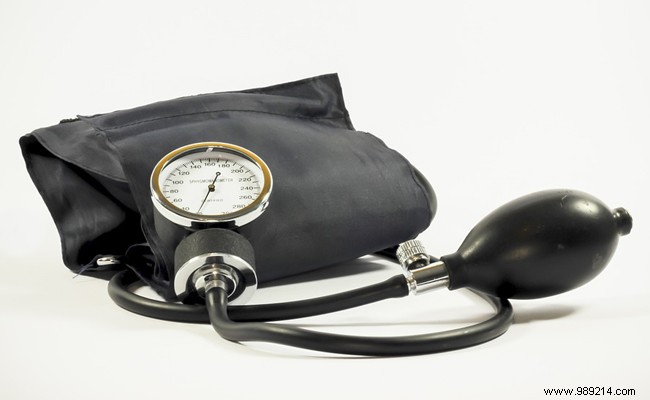Few people are aware of it, but monitoring your blood pressure is essential to prevent cardiovascular disease, the main causes of death in France.
Regularly measuring your blood pressure makes it possible to detect in particular arterial hypertension, the most common cardiovascular disease and which can be fatal.

Blood pressure measures the pressure exerted by the blood, irrigated by the heart, against the walls of the arteries, as well as the amount of blood pumped by the heart. The role of the arteries is to conduct blood from the heart to the tissues of the body and thus ensure the supply of oxygen essential to the survival of cells.
This is called blood pressure, i.e. the force that allows blood to circulate through all the organs. The role of the arteries is therefore vital. These must remain flexible and not clogged to best fulfill their function. Abnormal blood pressure may indicate hypertension (high blood pressure) or hypotension (low blood pressure).
Blood pressure is measured using a tensiometer consisting of a cuff with an inflatable sleeve and a pressure gauge that measures blood pressure. Using a stethoscope placed on the artery downstream of the cuff, the doctor calculates the blood pressure. Blood pressure is measured using two numbers, given in centimeters of mercury (cm Hg) or millimeters of mercury (mm Hg). The higher number measures systolic blood pressure, which is the pressure on the arteries related to the contraction of the heart. The second number, the lower, measures the flow of blood during the relaxation phase following the pressure on the arteries and during which the heart relaxes and fills. The pressure on the arteries is then less strong. It is called diastolic blood pressure.
The World Health Organization (WHO) considers a person to have hypertension when their systolic blood pressure is above 14 or when their diastolic blood pressure is above 9. However, a single blood pressure measurement will not not enough to conclude that there is hypertension. Indeed, the tension is very sensitive to external elements such as stress or effort for example. A serious diagnosis of hypertension therefore requires several resting blood pressure measurements.